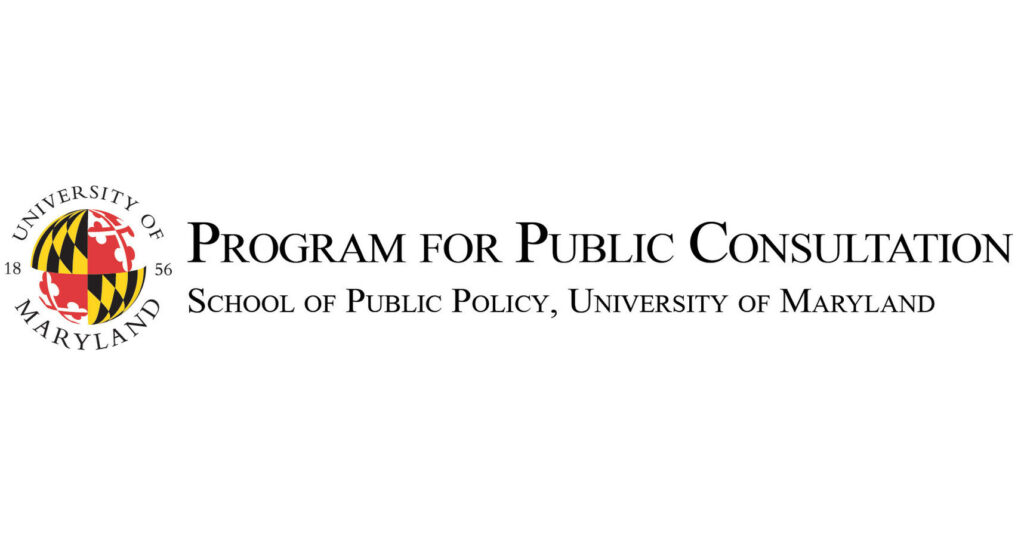college park, maryland, March 29, 2024 /PRNewswire/ — The House of Commons' new task force on artificial intelligence (AI) comes as the committee considers how the government should address AI issues such as deepfakes and algorithmic bias in elections. new research Program of public consultation in University of Maryland The School of Public Policy found a bipartisan majority in favor of giving the federal government broad powers to regulate AI. They support seven proposals currently under consideration in Congress and the executive branch to regulate AI-generated deepfakes and AI that makes potentially harmful decisions.
Internationally, voters are calling for the creation of an international body to regulate large-scale AI projects and an international ban on AI-controlled weapons, with the United Nations agreeing to a US-led resolution to ensure that AI does not violate human rights. We support the United States in its efforts to create a treaty.
To ensure that respondents understood the issues surrounding AI, they were provided with detailed explanations and arguments for and against each proposal, which were reviewed by experts on each side of the debate.
The enactment of new legislation against AI-generated deepfakes recorded overwhelming bipartisan support. All three proposals surveyed received support from more than 8 in 10 Republicans and Democrats.
- Prohibits the use of deepfakes in political campaign ads, such as depicting things that the opponent did not say or events that did not occur. (National Party 84%, Republican Party 83%, Democratic Party 86%)
- Prohibits the public distribution of pornographic deepfakes created without the consent of the person depicted. (National Party 86%, Republican Party 85%, Democratic Party 87%)
- Require all deepfakes shared publicly to be clearly labeled as such. (National Party 83%, Republican Party 83%, Democratic Party 85%)
Bipartisan majorities also support three proposals to tightly regulate AI programs that make decisions that can significantly impact people's lives, including health care, banking, employment, and welfare. .
More than 7 in 10 voters support proposals that:
- Require these AI programs to pass tests before they can be used. Testing assesses whether it may violate regulations, make biased decisions, or have security vulnerabilities. (National Party 81%, Republican Party 76%, Democratic Party 88%)
- Allowing governments to audit programs in use and requiring AI companies to fix any problems found. (National Party 77%, Republican Party 74%, Democratic Party 82%)
- Require AI companies to disclose to governments, upon request, information about how their decision-making AI is trained to support pre-testing and audits. (National Party 72%, Republican Party 67%, Democratic Party 81%)
Creating a federal agency for AI that would enforce regulations, oversee AI development, and provide guidance on AI policy is supported by 74% (68% Republicans, 81% Democrats).
Americans support the creation of an international regulatory body for large-scale AI. A bipartisan majority (77%) favors creating an agency to set international standards and monitor and inspect whether those standards are met (71% Republicans vs. 84% Democrats).
Americans also support a treaty that would ban the development of lethal autonomous weapons, which use AI to attack targets without human control. A bipartisan majority (81%) supports the United States working to create such a treaty and establishing an international organization to enforce it (77% Republicans, 85% Democrats).
“A majority of Republicans, as well as Democrats, support the creation of strong federal and international institutions to regulate AI and protect people from deepfakes, biased decision-making, and other potential harms from AI. “I'm doing it,” he commented. Stephen KullDirector of PPC.
The survey was conducted online February 16-23, 2024 We use a representative nonprobability national sample of 3,610 registered voters provided by Precision Sample. Confidence intervals vary from +/- 1.4 to 1.8%.
contact: JP Thomas; [email protected]; 617-899-8570
SOURCE Public Consultation Program



